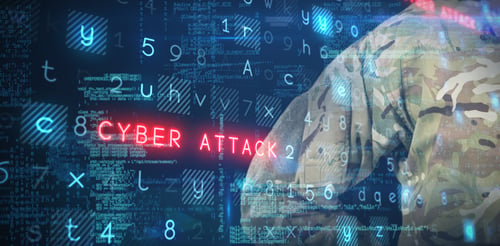Under Advisement—an unclassified program of U.S. Cyber Command that allows partners across all sectors of industry to collaborate and share technical information on foreign threats—is doubling in size to further strengthen its efforts to counter foreign cyber threats to the U.S.
In a June 29 news release, UNAD (as it's known) was cited for increasing two-way information-sharing that supports the Department of Defense's mission outside of the United States, enabling a broader threat picture and bolstered network defenses for both the U.S. government and industry partners.
"Under Advisement, and the relationships we have built with our industry partners, is game-changing,” said U.S. Army Major General William J. Hartman, commander of Cyber National Mission Force, the organization that launched UNAD. "We are able to enrich industry data with our expertise and unique insights, and share that back with trusted private sector partners—who then can better defend their networks at home, while we pursue malicious cyber actors abroad."
The release goes on:
UNAD is one part of the U.S. government's engagement with industry, and closely partners with fellow government-industry partner programs such as NSA’s Cybersecurity Collaboration Center and Department of Homeland Security's Joint Cyber Defense Collaborative.
"We're defending against the same adversary as industry," said Holly Baroody, executive director of U.S. Cyber Command and former deputy to the Cyber National Mission Force commander. "By working together and sharing indicators of compromise, we can get a clearer view of what the adversary is doing in cyber and disrupt their attacks."
UNAD is comprised of highly skilled technical experts, both military and federal civilians, who are in daily contact with industry via secure chat applications and invite-only industry forum. In every interaction, UNAD communicates in full, transparent attribution as members of Cyber Command's Cyber National Mission Force.
"Partnerships in cyberspace gives us an advantage that our adversaries don't have," said U.S. Army Lt. Col. Jason Seales, chief of Under Advisement. "A threat to one of our networks is a threat to all, and it takes public stakeholders and private industry to build foundational cyber defenses in and through partnering."
According to a blog from The Record:
The UNAD team of tech-savvy military and civilian experts will grow from one dozen to two dozen people by this time next year, according to Army Lt. Col. Jason Seales, the command's chief of private sector partnerships.
Cyber Command and companies use tools like Slack and Microsoft Teams to communicate daily about digital threats. The "results" for both the digital warfighting command and participating private organizations are "clear," he said during a recent interview at the NSA's Cybersecurity Collaboration Center (CCC).
"We need to make sure that we have additional resources and capabilities available... and not put the burden so much on the small handful of folks that we have now—kind of spread that wealth out."
More from the blog:
It is Cyber Command's authority to "impose costs" on adversaries globally that separates Under Advisement from the Cybersecurity and Infrastructure Security Agency's much more high-profile Joint Cyber Defense Collaborative (JCDC), with its focus on shielding the country's critical infrastructure and domestic networks from attack.
It also differentiates the team from the work of the Justice Department and the FBI, which aim to prosecute hackers in court, as well as the NSA's CCC with its cybersecurity missions.
That said, Under Advisement is a JCDC member and can tap that roster of partners—as well as the collaboration center's list of almost 500 participants from across the defense industrial base and private cybersecurity firms—to alert entities about potential threats.





